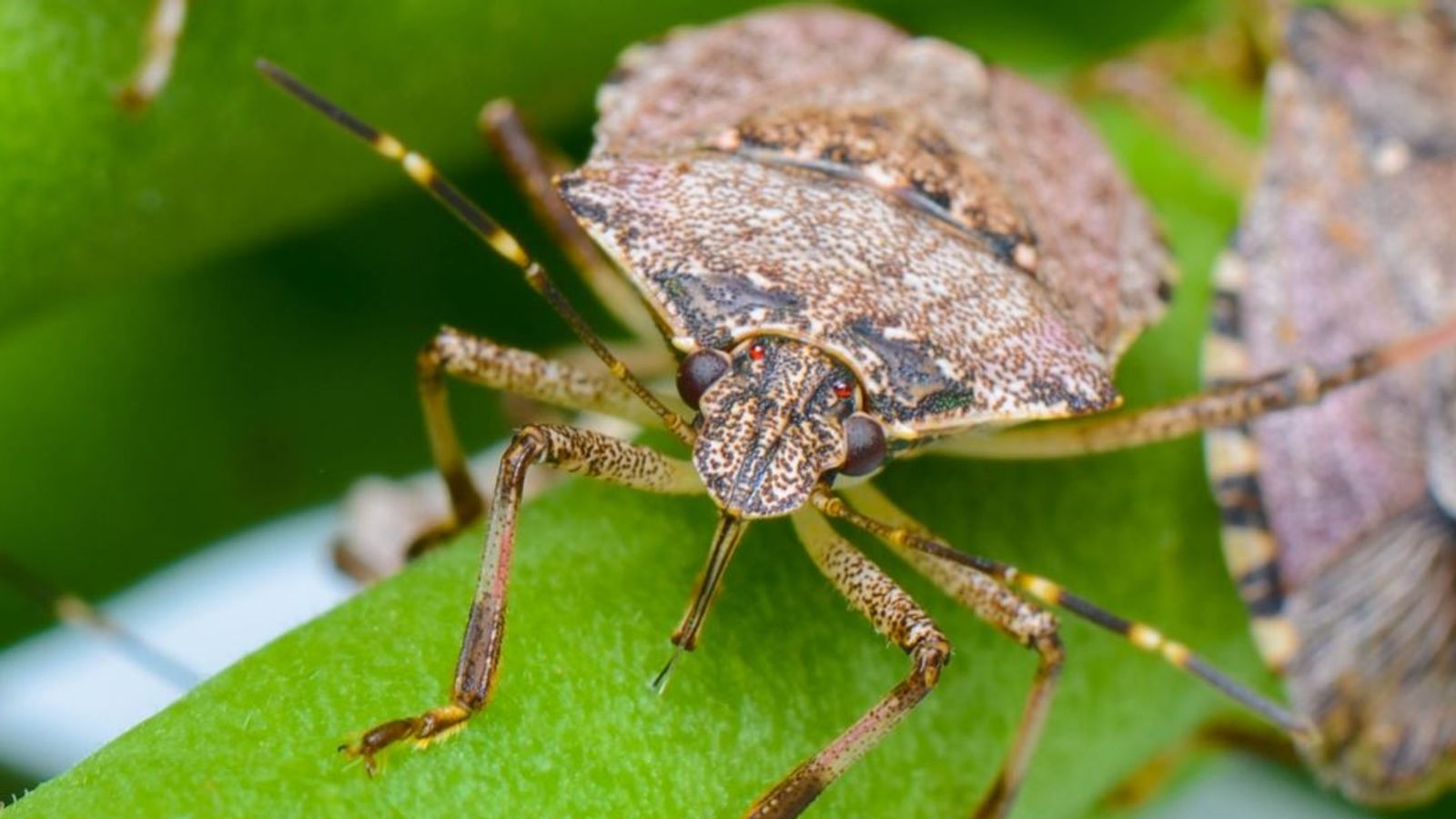Fruit farmers and winemakers are on high alert after an insect which can reduce the value of crops was found in parts of the UK.
The pest, known as the brown marmorated stink bug, is already found in the US and parts of Europe but is believed to be spreading to other parts of the world due to global warming.
As part of a study, scientists at the Natural History Museum and the horticultural research institute NIAB EMR in Kent, confirmed the bugs have been seen in London, Suffolk and Essex.
A member of the public also contacted the museum to confirm one was inside her home in Surrey.
Along with warming temperatures which allow the bugs to thrive, the modern easiness of travel has also given further opportunities for the bugs to spread, such as in shipping crates.
The flying bugs can damage the value of products such as apples, melons, cucumbers, tomatoes and plums by making them less aesthetically pleasing to buyers and more vulnerable to diseases.
They can also get into grapes, affecting the flavour of wine and an entire vintage.
The stink bug, which gets its name from being able to produce an unpleasant almond-like smell as a defence chemical, can also hibernate in buildings.
There have been reports of tens of thousands of the insects invading homes in the US and clustering around window frames.
Scientists have been warning for several years that it would only be a matter of time before the insect, which originates from South East Asia, would reach the UK.
Experts say the stink bug breeds quickly, has a long life and the adults can fly – but are not directly harmful to humans.
The Natural History Museum used its wildlife garden in London as part of the study, adopting trapping methods to “detect the presence of a new species”.
Wildlife garden manager, Tom McCarter, said the stink bug “was found on one of the hottest days of August 2020” and that it was “very handy” to use an urban green space as part of the research.






















